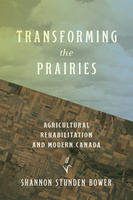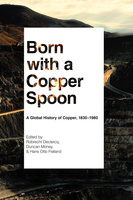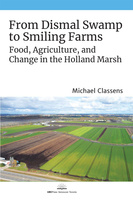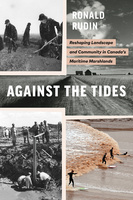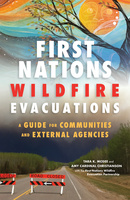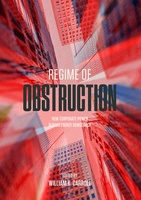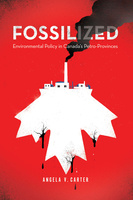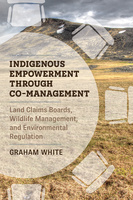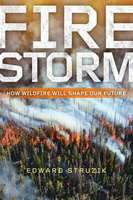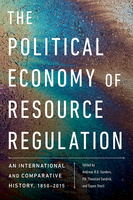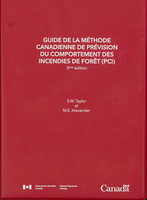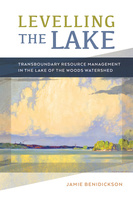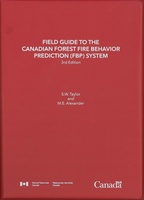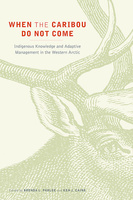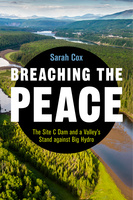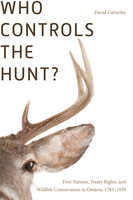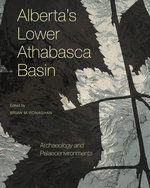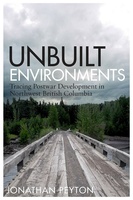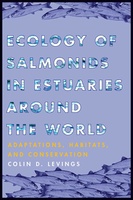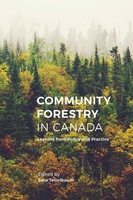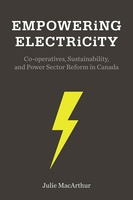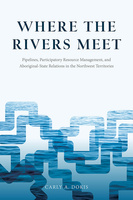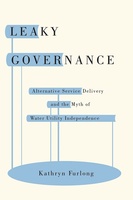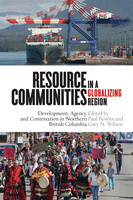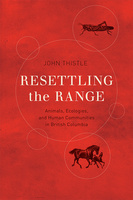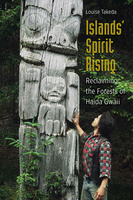Transforming the Prairies
Agricultural Rehabilitation and Modern Canada
Transforming the Prairies critically reassesses Canada’s Prairie Farm Rehabilitation Administration in light of its involvement in ecological changes and its role in consolidating colonialism and racism.
Sea Change
Charting a Sustainable Future for Oceans in Canada
Sea Change takes stock of what we know about Canada’s changing oceans, offering a wealth of practical information to support the task of building resilient, sustainable oceans and ocean communities.
Born with a Copper Spoon
A Global History of Copper, 1830–1980
Born with a Copper Spoon tells the fascinating and far-reaching story of one of the world’s most important metals.
From Dismal Swamp to Smiling Farms
Food, Agriculture, and Change in the Holland Marsh
From Dismal Swamp to Smiling Farms reveals how some of the most profitable farmland in Canada has been shaped, and ultimately imperilled, by liberal notions of progress and nature.
Against the Tides
Reshaping Landscape and Community in Canada’s Maritime Marshlands
Against the Tides tells the compelling story of the rehabilitation of the Maritime marshlands, a project that reshaped not only the landscape of the Bay of Fundy region but the communities that depended on it.
First Nations Wildfire Evacuations
A Guide for Communities and External Agencies
Based on the experiences of evacuees from seven First Nations communities, this book offers guidance to Indigenous communities and external agencies on how to successfully plan for and carry out wildfire evacuations.
The Government of Natural Resources
Science, Territory, and State Power in Quebec, 1867–1939
The Government of Natural Resources is a revealing look at how science can extend state power through territorial and environmental transformations.
Regime of Obstruction
How Corporate Power Blocks Energy Democracy
Rapidly rising carbon emissions from the intense development of Western Canada's fossil fuels continue to aggravate the global climate emergency and destabilize democratic structures. This book provides essential context to the climate crisis and will transform discussions of energy democracy.
Fossilized
Environmental Policy in Canada's Petro-Provinces
Fossilized reveals how Alberta, Saskatchewan, and Newfoundland and Labrador – blinded by exceptional economic growth from 2005 to 2015 – undermined environmental policies to intensify ecologically detrimental extreme oil extraction.
Indigenous Empowerment through Co-management
Land Claims Boards, Wildlife Management, and Environmental Regulation
This book is a clear, compelling, and evidence-based assessment of the effectiveness of co-management boards in providing Indigenous peoples with genuine influence over land and wildlife decisions affecting their traditional territories.
The Political Economy of Resource Regulation
An International and Comparative History, 1850-2015
This is the first global survey of how natural resources have been regulated in the modern world.
Guide de la méthode canadienne de prévision du comportement des incendies de forêt (PCI), 3ème édition
La Méthode canadienne de prévision du comportement des incendies de forêt (PCI) est une méthode systématique permettant d’évaluer le comportement potentiel des feux de forêt. Il a pour objet d’aider le personnel de terrain à établir les premières approximations tirées de la Méthode PCI lorsqu’on ne dispose pas de version informatisée.
Levelling the Lake
Transboundary Resource Management in the Lake of the Woods Watershed
It’s one thing to live in a watershed. We all do. It’s another to manage one, as Levelling the Lake compellingly demonstrates.
Field Guide to the Canadian Forest Fire Behavior Prediction (FBP) System, Third Edition
This field guide provides a simplified version of The Canadian Forest Fire Behavior Prediction (FBP) System, presented in tabular format. It was prepared to assist field staff in making first approximations of FBP System outputs when computer-based applications are not available.
When the Caribou Do Not Come
Indigenous Knowledge and Adaptive Management in the Western Arctic
When the Caribou Do Not Come highlights the knowledge and perspectives of northern Canadian communities that have been dealing with caribou population fluctuations for generations.
Breaching the Peace
The Site C Dam and a Valley’s Stand against Big Hydro
Award-winning journalist Sarah Cox recounts the prolonged battle, led by farmers and First Nations, to stop the cripplingly expensive and environmentally irresponsible Site C dam.
Who Controls the Hunt?
First Nations, Treaty Rights, and Wildlife Conservation in Ontario, 1783-1939
Tracing the connections between colonialism and the early conservation movement in Ontario, Who Controls the Hunt? examines the contentious issue of treaty hunting rights and the impact of conservation laws on First Nations.
Alberta's Lower Athabasca Basin
Archaeology and Palaeoenvironments
Contributors discuss and explore the unique record of prehistoric landscape use revealed by development in the lower Athabasca Basin.
Unbuilt Environments
Tracing Postwar Development in Northwest British Columbia
This book looks at the long-term social and environmental effects of imagined, abandoned, and failed resource-development schemes in northwest British Columbia.
Striving for Environmental Sustainability in a Complex World
Canadian Experiences
In the face of growing anxiety about the environmental sustainability of the world, George Francis, a leading authority in the field of sustainability studies, examines initiatives undertaken in Canada over the past twenty-five years to protect some of our unique environments.
Ecology of Salmonids in Estuaries around the World
Adaptations, Habitats, and Conservation
A comprehensive guide to understanding the crucial role estuaries play in the salmonid life cycle and what can be done to conserve – and recover – this important fish habitat.
Community Forestry in Canada
Lessons from Policy and Practice
The first comprehensive look at community forestry initiatives across Canada, this book provides a rich and detailed portrait of the sector from Newfoundland to British Columbia.
Empowering Electricity
Co-operatives, Sustainability, and Power Sector Reform in Canada
This revealing analysis of Canada’s electrical power co-operatives challenges our understanding of their history and shines a light on their potential within the nation’s electricity sector.
Where the Rivers Meet
Pipelines, Participatory Resource Management, and Aboriginal-State Relations in the Northwest Territories
An examination of Sahtu Dene participation in the assessment of the Mackenzie Gas pipeline and other resource extraction projects, this book provides an in-depth account of the workings and effects of participatory environmental assessment in the Canadian North and its implications for the legitimization of resource co-management.
Leaky Governance
Alternative Service Delivery and the Myth of Water Utility Independence
Municipalities face important water supply challenges. One response has been to render utilities independent from municipal government through alternative service delivery. Both water management and municipal governance must be strengthened to meet contemporary water supply needs.
A Town Called Asbestos
Environmental Contamination, Health, and Resilience in a Resource Community
In A Town Called Asbestos, a mining town’s proud and painful history is unearthed to reveal the challenges a small resource community faced in a globalized world.
Resource Communities in a Globalizing Region
Development, Agency, and Contestation in Northern British Columbia
This book explores how the peoples and communities of northern British Columbia are responding to global demand for local resources.
Resettling the Range
Animals, Ecologies, and Human Communities in British Columbia
This unconventional history looks at the resettlement of interior British Columbia from the perspective of campaigns to exterminate grasshoppers and wild horses, creatures considered by some to be pests.
Islands' Spirit Rising
Reclaiming the Forests of Haida Gwaii
Set within the context of resource conflict and collaborative land-use planning on Haida Gwaii, this book examines how historic relations of domination and oppression can be transformed and more sustainable forms of land governance created.

